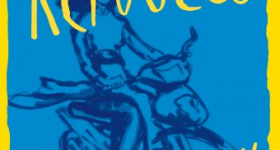"Reverse racism" is a term used to describe discriminatory acts
performed by non-dominant groups towards the dominant group in a
society. It's highly charged because 1) it implies that dominant groups
can actually be victims of racism despite the institutional power they
wield over all other groups and 2) it is a rallying cry for opponents
of affirmative action.
Tim Wise cleverly illustrates Point 1 with an anecdote about a group of Native American students who tried very hard to be "racist" against whites:
Indian students at
Northern Colorado University, fed up by the unwillingness of white
school district administrators in Greeley to change the name and
grotesque Indian caricature of the Eaton High School “Reds,” recently
set out to flip the script on the common practice of mascot-oriented
racism.Thinking they would show white folks what it’s like to
“be in their shoes” and experience the objectification of being a team
icon, indigenous members of an intramural basketball team renamed
themselves the “Fightin’ Whiteys,” and donned t-shirts with the team
mascot: a 1950's-style caricature of a suburban, middle class white
guy, next to the phrase “every thang’s gonna be all white.”Funny
though the effort was, it has not only failed to make the point
intended, but indeed has been met with laughter and even outright
support by white folks. Rush Limbaugh actually advertised for the
team’s t-shirts on his radio program, and whites from coast to coast
have been requesting team gear, thinking it funny to be turned into a
mascot, as opposed to demeaning.Of course the difference is
that it’s tough to negatively objectify a group whose power and
position allows them to define the meaning of another group’s attempts
at humor: in this case the attempt by Indians to teach them a lesson.
It’s tough to school the headmaster, in other words.Objectification
works against the disempowered because they are disempowered. The
process doesn’t work in reverse, or at least, making it work is a lot
tougher than one might think.Without the
power to define another group's reality, Indian activists are simply
incapable of turning the tables by way of well-placed humor.[emphasis mine]
As for Point 2, "reverse racism" and affirmative action, I can put it no better than Stanley Fish:
"At this point someone will always say, "But two wrongs don't make a right; if
it was wrong to treat blacks unfairly, it is wrong to give blacks preference
and thereby treat whites unfairly." This objection is just another version of
the forgetting and rewriting of history. The work is done by the adverb
"unfairly," which suggests two more or less equal parties, one of whom has been
unjustly penalized by an incompetent umpire. [...] The word "unfair" is
hardly an adequate description of their experience, and the belated gift of
"fairness" in the form of a resolution no longer to discriminate against them
legally is hardly an adequate remedy for the deep disadvantages that the prior
discrimination has produced."
I
referred to "reverse racism" as a myth in my last post because I
disagree with the term's underlying assumption that all prejudice is
equal. While we ought to examine race relations critically, never rashly
justifying any kind of discrimination, we must also always be careful
to place ourselves and our criticisms within an appropriate historical,
social and political context that takes into account the legacies of
racism that inform our current, and varied, personal experiences in the
world of race relations. The Internet is great, because it means we can
educate ourselves about these issues quickly and easily... but, as in
the real world, we have to be careful where we go for that
education. Google isn't always the justest arbiter of knowledge.










Comments